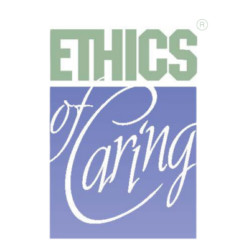“Direct care is at the heart and soul of nursing and without it we lose nursing as a profession and as a discipline.”

Elizabeth Peter RN, Ph.D joins our conference this year bringing to us her perspective on Nurse’s Moral Agency. Her academic studies of nursing, philosophy, and bioethics afford a unique lens in which to view the development of ethical competence, cultivate ethical cultures, and appreciate the complexity of being moral agents and acting in more well-informed and virtuous ways.
Over the years Dr. Peter has looked at nurse’s moral agency within the framework of the hospitals and institutions in which they work. Looking at not only what constrains the development of the moral agency, but also on actions nurses can take that builds that agency. Dr. Peters identifies her research as “focusing on examining the political dimensions of nurses’ ethical concerns and understandings.”
Click to Share this 2022 Spotlight!
Q:
You have been looking at nursing relationships and how professional trust is developed for many years.What shifts have you seen in nursing that you feel have helped and changes you have seen that have hindered nurses ability to establish and maintain trust in healthcare relationships?
Over the years, the complexity of relationships of professional trust has become more apparent to me as healthcare systems grow and change. One thing that has helped maintain the trust in nurse-patients relationships is the enduring commitment that nurses have to patients and their families. I am struck by the students that I encounter that they remain deeply concerned with not only their patients’ diseases, but also their illness experiences. In fact, I notice a growing interest in issues of social justice as nurses work with patients in hospitals and communities and make great efforts to support people in their efforts to access the social determinants of health. On the other hand, cut-backs and pressures to make health systems more efficient have led to the distrust nurses have in healthcare systems. It also sometimes has led to nurses having little time to develop the kind of relationships they would like to have with patients/clients leading to an erosion of trust. I have also noticed that families sometimes place a great deal of pressure on nurses to support aggressive treatment at end-of-life as expectations in the power of medicine to sustain life have increased. At times, this kind of pressure also has eroded the trust among nurses and families.
– Elizabeth Peter
Q:
What do you see happening that gives you hope that the professional nurse will be successful in maintaining their caring practice, especially those taking direct care of patients?
The fundamentals of care movement gives me hope in that it makes visible and valuable the importance of care practices that sometimes are unjustifiably considered menial. Direct care is at the heart and soul of nursing and without it we lose nursing as a profession and as a discipline. Over the past two years I have had a number of close family members in need of care as a result of illness and disability. The aging of many societies may drive the significance of nursing to the awareness of the public. Humans do not survive without care whether it be at the hands of family and friends or professionals.
– Elizabeth Peter
Q:
In the current healthcare environment what transformations do you see that nurses can capitalize on that will strengthen their professional and moral identity?
In the current healthcare environment, there are more nurses than ever before in positions of leadership and influence. Those in these roles, when they are good role models, can strengthen the professional and moral identity of nurses. More opportunities exist for nurses to develop their leadership capabilities through professional organizations and educational opportunities, making it more possible to find ways to capitalize on these changes.
